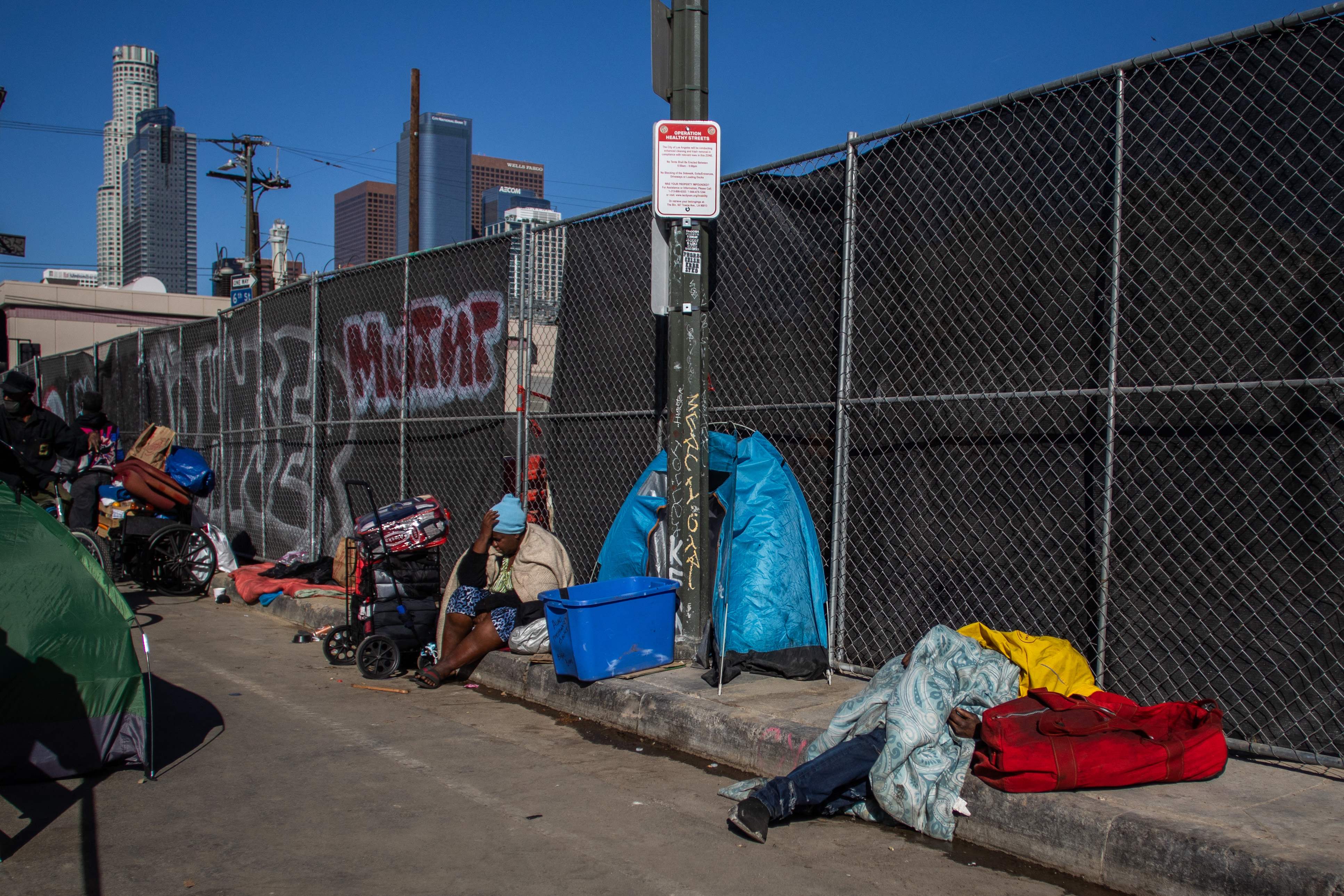Almost 2,000 homeless people died in LA during first year of pandemic, a rise of more than 50 percent
Majority of deaths were drug overdoses after mental health and substance abuse treatments were slashed to curb Covid spread
A surge in drug overdoses among Los Angeles County’s homeless population during the first year of the pandemic came as mental health and substance abuse treatment after services were drastically reduced to prevent the spread of the virus, officials say.
A report from LA County’s Department of Public Health showed that nearly 1,988 died between 1 April 2020 and 31 March 2021, an increase of 56 per cent from the previous year.
Drug overdoses increased by 78 per cent during the pandemic’s first year. In the pre-pandemic year, the Department of Public Health reported 402 fatal overdoses. In the year after the outbreak, the number nearly doubled to 715, the report said.
Coronary heart disease was the second leading cause of death in the first year of the pandemic, accounting for 309 deaths and an increase of almost 30 per cent from the previous year, the report said.
The report found that 179 homeless people died from Covid-19 during the pandemic’s first year.
The pandemic likely exacerbated an already growing drug and overdose problem, driven by the prevalence of fentanyl, authorities said. Methamphetamine was involved in the majority of deaths, at 75 per cent, roughly the same as the previous year.
But the involvement of fentanyl in overdose deaths nearly doubled to 45 per cent, the report said.
“The findings in this report reflect a true state of emergency,” said First District Supervisor Hilda L. Solis.
“In a civil society, it is unacceptable for any of us to not be profoundly disturbed by the shocking needs documented in this year’s homeless mortality report.”
Los Angeles County is home to the Skid Row neighborhood, notorious for poverty and drugs and where LA’s homeless population was once largely confined. Now, rows of tents, cardboard shelters, battered RVs and makeshift plywood structures are familiar sights throughout the nation’s second-most populous city.

California has the largest unhoused population in the country, estimated at 161,000 with nearly a quarter of that number suffering from severe mental illness, according to a 2020 count of homeless people required by the U.S. Department of Housing and Urban Development.
“The COVID-19 pandemic’s impact on people experiencing homelessness has clearly extended beyond the immediate effects of this new and deadly virus,” said Los Angeles Public Health Director Barbara Ferrer.
“The pandemic has exacerbated stressors already burdening this vulnerable population.”
A study of San Francisco homeless deaths released last month showed similar findings: Between March 2020 and March 2021, there were 331 homeless deaths recorded in San Francisco, more than twice the number of any previous year, with the leading cause of death being drug overdose, according to a study conducted by the University of California San Francisco and the city’s Department of Public Health.
Associated Press contributed to this report



Join our commenting forum
Join thought-provoking conversations, follow other Independent readers and see their replies
Comments